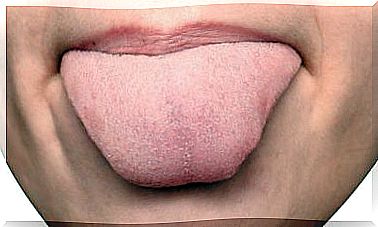7 Interesting Things Your Body Does When You Are Sound Asleep
Getting a period of deep and restful sleep is a matter of health. When rest is shortened or interrupted, problems can occur. What happens when you are sound asleep?

One of the main needs of the body is to sleep between 7 and 8 hours a day, since, during the hours in which you are deeply asleep, the body repairs itself and renews its energies to take on a new day with the best physical disposition and mental.
What very few know is that, just in this period, some interesting actions are carried out that influence the quality of life and health in general. Next, we will tell you a little more about everything that can happen when you manage to get into a deep sleep. You’ll be surprised!
1. Eye movement is increased
It is estimated that, during the sleep cycle, the body goes through five stages, the last being the deepest of all. This is known as the REM phase (rapid eye movement, or rapid eye movement) and is characterized by continuous eye movement and the appearance of dreams.
According to a WebMD publication , this phase is achieved about 90 minutes after sleeping and represents 20% of total sleep. In addition, it suggests that the movement of the eyes is due to the fact that the brain is more active.

2. Growth hormone is produced
One of the reasons why good sleep is so important is because, right at that moment , the body generates a process in which growth hormone is secreted.
According to a publication from the Mayo Clinic, growth hormone is responsible for stimulating growth in babies and children and, in addition, it maintains healthy tissues and organs throughout life.
3. The kidneys have more capacity
During the active day, the kidneys work to filter toxins in the blood and produce urine. However, when you are fast asleep, that work slows down and there is less urine output compared to daytime.
This explains why it is almost never necessary to get up to urinate during the night and the next day it tends to be darker. According to a study published in Nature Communications , carried out in animals, a protein called connexin43 would be responsible for helping the kidneys also have a circadian clock that controls their capacity, which is lower during the day.
4. They grind their teeth
This rare symptom, which in professional terms is known as bruxism, can be the result of stress or misalignment of the teeth. This sometimes causes the person to feel pain in the jaw and dental complications appear.
Although there are no conclusive studies in this regard, it is believed that bruxism develops more often at night because when you are sound asleep you lose the awareness of stopping this involuntary reflex of the body.

5. Sudden movements
This reflex is very common in all human beings and occurs when reaching the deepest phase of sleep. At this point you experience a sudden jump or a strong jolt and, although it is sometimes very annoying, it is something that happens regularly and should not be a cause for concern.
According to a study in the Journal of Neurosciences in Rural Practice , there are several theories regarding these involuntary movements but none are conclusive. Now, one of them suggests that they are a defense response of the brain, since it links the total relaxation of the body as a fall and causes the muscles to contract.
6. The brain discards what it does not need
The brain accumulates a quantity of toxins during the day that, later, it discards at night when completing a cleaning process. In this process, it mitigates mental fatigue and renews energy for a new journey.
A publication in MEDTube Science suggests that some research has found a link between deep sleep and the elimination of toxins from the brain through a channel called the glymphatic system, which functions as a waste elimination pathway.
7. Sleep paralysis
This state occurs in the deepest phase of sleep and is characterized by an uncomfortable sensation of body immobility. This can be scary as it is often accompanied by nightmares in which the person is unable to have some kind of reaction to escape.
According to a National Health Service publication , although there is no conclusive information on the specific causes of this phenomenon, it is suggested that it could be linked to:
- Insomnia.
- Disrupted sleep patterns.
- Narcolepsy (falling asleep suddenly).
- Posttraumatic stress.
- General anxiety
- Panic attacks.
- Family history of sleep paralysis.

Sleeping well is synonymous with good health
Sleeping well, coupled with a regular routine of physical activity and a balanced diet, is one of the best ways to maintain a healthy lifestyle.
Additionally, good quality sleep is believed to improve concentration, creativity, fitness, and symptoms associated with stress and anxiety.
It is important to remember that, if the problems falling asleep are constant or some of the states mentioned above are very annoying and repetitive, it is best to consult your doctor.









